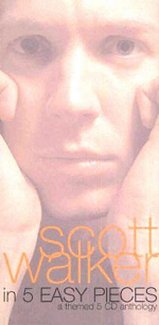
5 Easy Pieces is a box set anthology of the career of Scott Walker. It was released in November 2003. The set comprises five themed CDs and a 56-page booklet.

Tilt is the twelfth solo studio album by the American/English singer-songwriter Scott Walker. It was released on 8 May 1995. It was Walker's first studio album in eleven years.

"Arnold Layne" is a song by English rock band Pink Floyd. Released on 10 March 1967, it was the band's first single and was written by Syd Barrett.
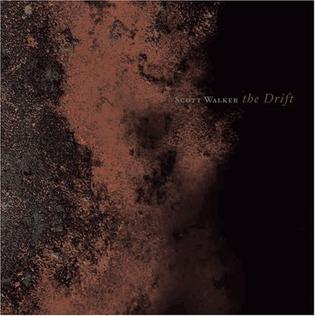
The Drift is the thirteenth solo studio album by American singer-songwriter Scott Walker, released on 8 May 2006 on 4AD. Apart from composing the soundtrack to the film Pola X, the album was Walker's first studio album in eleven years and only his third studio album since the final disbanding of The Walker Brothers in 1978. Walker composed the songs for the album slowly over the decade after the release of 1995's Tilt, beginning with "Cue", up until the album's recording. An early version of "Psoriatic" was premiered at the Meltdown festival on 17 June 2000 under the title "Thimble Rigging".

Climate of Hunter is the eleventh solo studio album by the American singer-songwriter Scott Walker. It was released in March 1984 and reached number 60 on the UK Albums Chart. It was his only album of the 1980s.

Scott 2 is the second solo album by Scott Walker, released in 1968 by Philips Records in the UK and Smash Records in the US. Featuring the minor hit "Jackie", it arrived at the height of Walker's commercial success as a solo artist, topping the UK Albums Chart.

Scott is the debut solo album by Scott Walker, originally released in the United Kingdom on Philips Records in 1967. The album received both strong commercial success as well as critical praise, hitting No. 3 on the UK Albums Chart. The album was produced by John Franz, who had previously worked with Walker's group the Walker Brothers, while its instrumental accompaniments were arranged and conducted by Angela Morley, Reg Guest and Peter Knight.
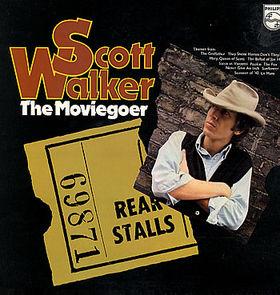
The Moviegoer is the seventh solo studio album by the American singer Scott Walker. It was released in October 1972 but failed to chart. No singles were released from the album, though "This Way Mary" was later released as a b-side to Walker's 1973 single "The Me I Never Knew". The album consists solely of renditions of film theme songs originally performed by other artists.
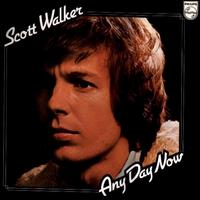
Any Day Now is the eighth solo studio album by the American singer Scott Walker. It was released in May 1973 but failed to chart. "The Me I Never Knew" was released as the album's sole single backed with the opening track of The Moviegoer; "This Way Mary". The album was also the final Walker studio album from Philips Records and he later signed with CBS Records.

Scott: Scott Walker Sings Songs from his T.V. Series is the fourth solo album by American artist Scott Walker. It was released in June 1969 and reached number seven on the UK Albums Chart, his last album to make the top 10. No singles were released from the album, though some editions include Walker's top-twenty single; "Lights of Cincinnati". The album does not include original compositions by Walker and consists of performances of ballads and big band standards. The album has since been deleted and has not been reissued.

"No Regrets" is a song by folk and blues singer/songwriter Tom Rush. It is the final song on his 1968 album The Circle Game and was released as a single in the UK in January 1968 and in the US in April. It peaked at number 57 on the UK BMRB Breakers, an official extension of the UK Singles Chart.

Scott Walker Sings Jacques Brel is a compilation of Jacques Brel compositions recorded by Scott Walker during the period of 1967 to 1969. The compilation brings together all the Brel material that Walker covered on record. Walker additionally performed five Brel songs on his television series including "Alone"; another Brel/Shuman composition. None of these live recordings were released on the accompanying soundtrack.
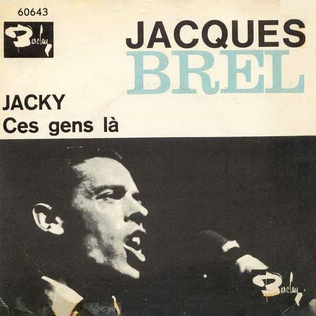
"Jacky" (La chanson de Jacky) is a song written by the Belgian singer-songwriter Jacques Brel and Gérard Jouannest. Brel recorded the song on 2 November 1965, and it was released on his 1966 album Ces gens-là. The song was translated from French into English and retitled "Jackie".

"Joanna" is a song written by the English husband and wife song-writing team Tony Hatch and Jackie Trent which was first a song for the American singer-songwriter Scott Walker in 1968. The song was Walker's second solo single in the United Kingdom. The accompaniment was directed by Peter Knight.

"We're Gonna Move" is a song by Elvis Presley. The song is credited to Elvis Presley and Vera Matson, the wife of Ken Darby, the principal writer, published by Elvis Presley Music. The song was featured in the 20th Century Fox movie Love Me Tender and was released as an RCA Victor EP in 1956.

"Pretty Girls Everywhere" is a song written by Eugene Church and Thomas Williams.

"(Baby) You Don't Have to Tell Me" is a song by New York songwriter Pete Antell and first recorded by singer Bobby Coleman. The obscure song was later recorded and released by the American pop group the Walker Brothers as their sixth single in 1966. The accompaniment was directed by Reg Guest.

"Deadlier Than the Male" is a song written by American singer-songwriter Scott Walker under his real name of Scott Engel with UK record producer Johnny Franz. The song was first recorded and released by Walker's pop group The Walker Brothers as their eighth single in 1966. The accompaniment was directed by Reg Guest. The song was the title track for the 1967 British action film Deadlier Than the Male which featured the character of Bulldog Drummond.

"Man from Reno" is a song written by musician and composer Goran Bregović with lyrics by American singer-songwriter Scott Walker in 1993. The song was recorded and released by Bregović and Walker for the 1993 French comedy film Toxic Affair, directed by Philoméne Esposito. Bregović composed the rest of the film's score. A stylised sepia-toned music video was produced for the single. The single was Walker's seventh and last solo single.



















